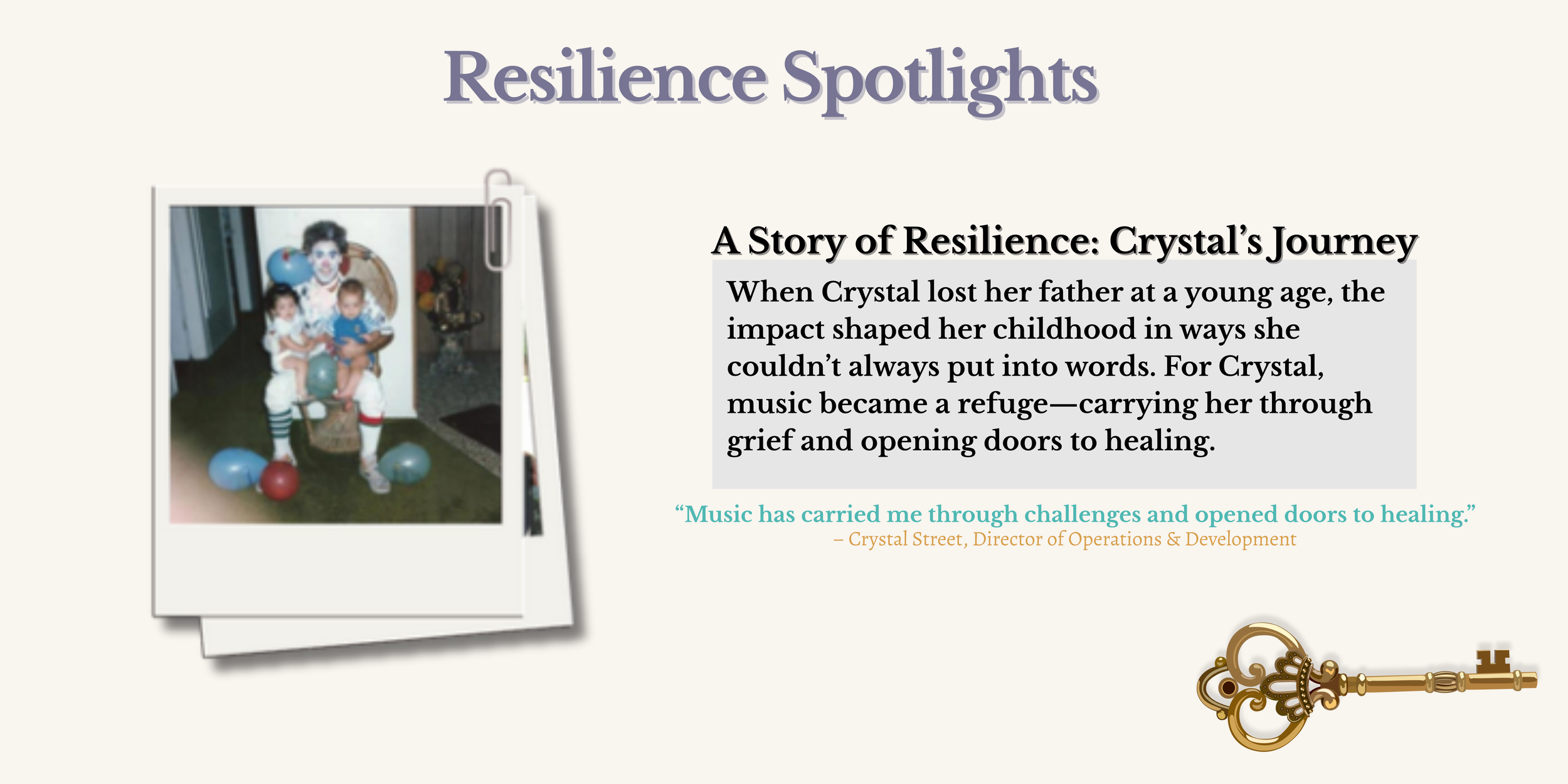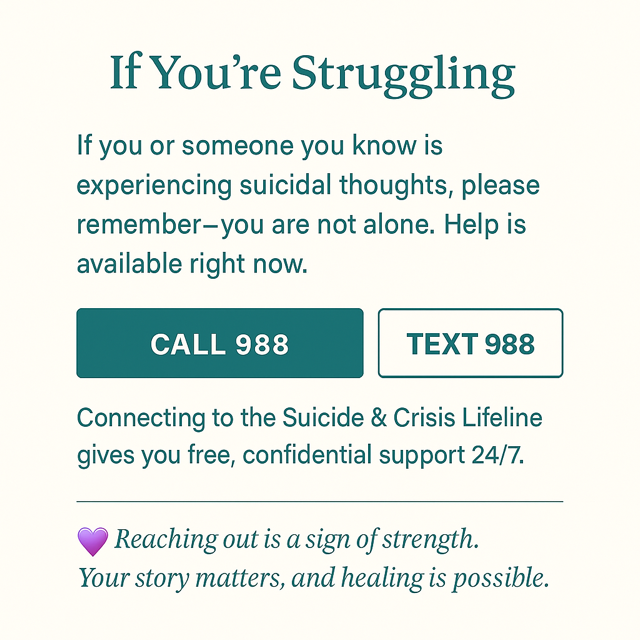A Story of Resilience: Finding Healing Through Music
Growing up, resilience wasn’t a word I used—but it was something I lived.
When I lost my father, Israel “Sonny” Medina, at a teenager, my world shifted in ways that are hard to put into words. He wasn’t just my dad—he was a hero. Known as the North Hollywood bank hero, he carried himself with valor and courage, traits I could feel even as a child. But behind that bravery, he carried invisible wounds. My father battled undiagnosed PTSD after his 18-years of service and sacrifice. In the end, the weight of that struggle became too much, and we lost him to suicide.
That loss shaped my childhood in ways I couldn’t always understand. His absence left a silence that echoed through my life, and for years, I didn’t know how to give that silence a voice.
Music as Refuge
In the middle of grief, music became my safe place. It gave me words when I couldn’t find my own, and melodies that carried my pain without judgment. Songs became companions, verses became prayers, and rhythms became reminders that I was still alive.
Music didn’t just help me grieve—it helped me heal. It was a bridge between my broken past and the resilient person I was becoming.
Grief, Trauma, and the Long Road to Healing
As a child, I went to counseling for grief. What I didn’t realize then was that I also needed trauma counseling. Trauma doesn’t always show itself in obvious ways—it reshapes how we see the world, how we trust, and how we cope.
It wasn’t until I was older that I understood I needed more than just a space to talk about loss. I needed to address the impact of trauma on my nervous system, my relationships, and my sense of self. That’s when I began to seek trauma-informed counseling, and slowly, I started piecing together the parts of myself that grief and trauma had fractured.
What My Father’s Story Taught Me
My father’s courage and his pain taught me two truths that shape who I am today:
Heroes hurt too. Just because someone is strong doesn’t mean they aren’t struggling inside.
Resilience comes from facing pain, not hiding it. Healing requires honesty, compassion, and the willingness to reach out for help.
Tips for Building Resilience After Loss
Looking back, here are a few things that helped me—and that I believe can help others navigating grief and trauma:
Find your refuge. For me it was music. For you, it might be art, writing, nature, or prayer. Whatever it is, let it hold you when words can’t.
Seek trauma-informed support. Grief counseling is important, but sometimes we also need deeper tools to address trauma’s impact on our bodies and minds.
Tell your story. Sharing isn’t weakness—it’s connection. Whether in a journal, with a counselor, or in a community, your story deserves to be heard.
Build resilience in small steps. Resilience isn’t one giant leap—it’s choosing to get back up, day after day, even when it feels impossible.
Honor the legacy. My father’s courage continues to guide me. Honoring his memory reminds me that even in loss, love and legacy remain.
Moving Forward
Today, when I think about my father’s bravery, I understand resilience differently. It’s not about being unbreakable. It’s about letting yourself be human, leaning into healing, and finding strength in places you never expected—like a song, a melody, or a community that understands.
Resilience is a story we live every day. And mine began with loss, but it continues with hope.
“Music has carried me through challenges and opened doors to healing.
”
If you’re struggling, reach out
Taking care of your mental health is just as important as taking care of your physical health. When life feels overwhelming, it can be hard to remember that you don’t have to carry the weight alone.
Call or text 988 (24/7). This connects you to the Suicide & Crisis Lifeline, offering free, confidential support 24/7. Trained counselors are ready to listen, support, and guide you towards safety and hope.
Why Mental Health Matters
Strength, not weakness: Seeking help shows courage and self-awareness.
Healing is possible: With support, many people find their path forward.
Connection saves lives: Talking to someone can make the difference between despair and hope.


